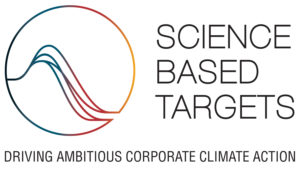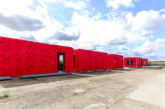 Wates Group announces that its near-term greenhouse gas (GHG) emissions reduction target has been approved by the Science Based Targets Initiative (SBTi), committing the company to reduce absolute Scope 1 and Scope 2 GHG emissions by 46.2% by 2030.[1]
Wates Group announces that its near-term greenhouse gas (GHG) emissions reduction target has been approved by the Science Based Targets Initiative (SBTi), committing the company to reduce absolute Scope 1 and Scope 2 GHG emissions by 46.2% by 2030.[1]
The target, which aligns with the Paris Climate Accord’s central aim to limit global warming to 1.5°C, is currently the most ambitious designation available through the SBTi process. It also commits Wates to 89% of its suppliers by emissions covering purchased goods and services having science-based targets by 2027.[2]
 Wates, which is one of the UK’s leading privately-owned construction, residential development, and property services companies, launched the targets at its 125th Anniversary Supplier Conference in Coventry on the 6th October, attended by 120 members of its national supply chain. Scope 3 emissions ± those not produced by the company itself — account for 98% of its total and Wates will focus efforts on collaborating with suppliers that contribute the most. The built environment sector is estimated to be responsible for 25% of the UK’s total GHG emissions, a key driver of climate change and global warming.[3]
Wates, which is one of the UK’s leading privately-owned construction, residential development, and property services companies, launched the targets at its 125th Anniversary Supplier Conference in Coventry on the 6th October, attended by 120 members of its national supply chain. Scope 3 emissions ± those not produced by the company itself — account for 98% of its total and Wates will focus efforts on collaborating with suppliers that contribute the most. The built environment sector is estimated to be responsible for 25% of the UK’s total GHG emissions, a key driver of climate change and global warming.[3]
Bekir Andrews, Environmental Sustainability Director at Wates Group, said: “Having our near-term targets validated by the SBTi demonstrates our commitment to drive more sustainable outcomes from our operations and support our customers with their sustainability targets.
“The latest climate science from the Intergovernmental Panel on Climate Change (IPCC) shows it is still possible to limit global temperature rise to 1.5°C, but we are dangerously close to that threshold and that is why we have gone for the most ambitious targets available.
“To limit the risk of dangerous climate change we must collaborate across the entire value chain, supporting innovative solutions and engaging with suppliers to set their own science-based targets and drive carbon reductions within their own operations.”

A collaboration between CDP [4], the United Nations Global Compact, World Resources Institute (WRI) and the World Wide Fund for Nature (WWF), the SBTi defines and promotes best practice in science-based target setting and independently assesses and approves companies’ targets.
Wates committed to the now approved near-term science-based target at the end of 2021. The business has also committed to becoming net zero by 2045 and will be submitting this target to the SBTi to be officially validated as a next step.
[1] From a 2019 base year.
2 The target boundary includes land-related emissions and removals from bioenergy feedstocks.
3 Building to net zero: costing carbon in construction – May 2022.
4 Formerly known as the Climate Disclosure Project.
Header image: Sustainable housing delivered by Wates Residential at Highfields, Cardiff.









